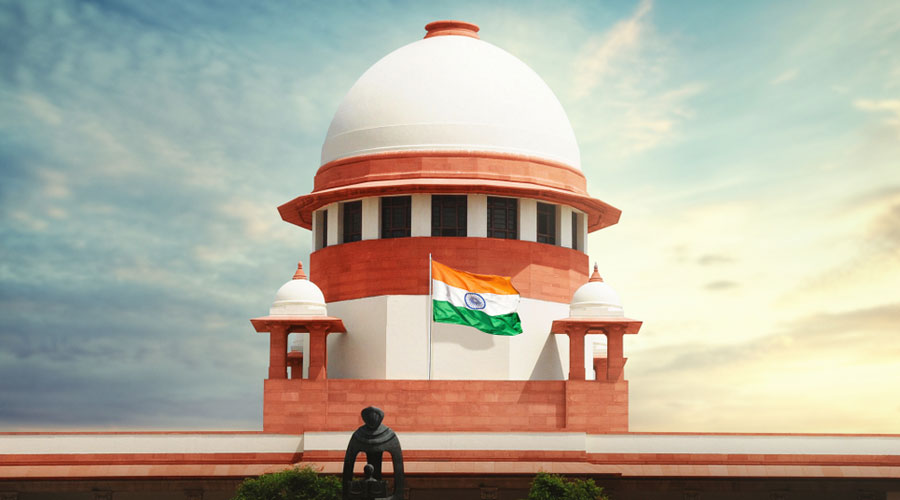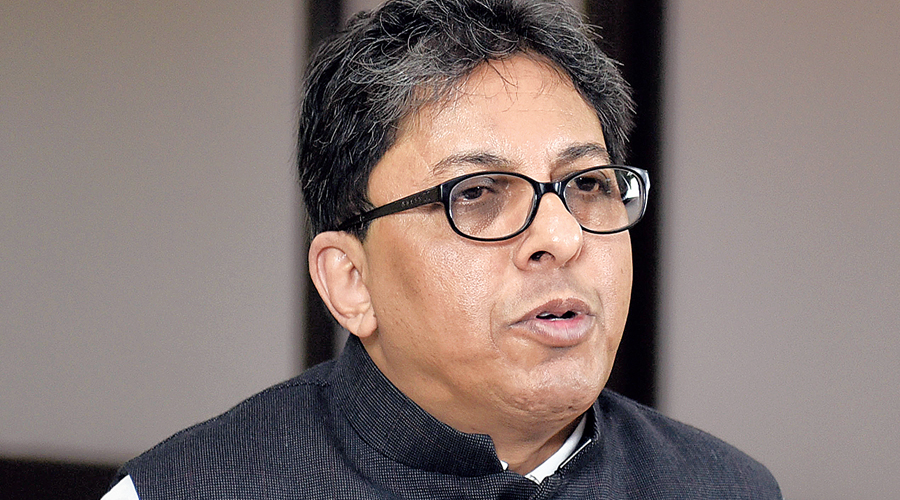The Campaign for Judicial Accountability and Reforms (CJAR) on Monday sought immediate recall of the decision to transfer Madras High Court Chief Justice Sanjib Banerjee to Meghalaya High Court, asking the Supreme Court collegium to uphold the “independence and integrity of the judiciary”.
The civil society body had issued its statement hours before the Centre notified the transfer on Monday night.
Praising the judge for “his commitment to constitutional values”, the CJAR expressed “deep disappointment” that the transfer “adheres to a recent pattern where the collegium’s decisions have conformed to the wishes of the Union government”.
The CJAR said the collegium should from now on pass a resolution stating the reasons for a transfer within 24 hours of the recommendation to avoid misgivings and adverse inferences among the public.
Members of the CJAR include well-known advocates such as Shanti Bhushan and Prashant Bhushan and activists such as Anjali Bhardwaj and Arundhati Roy.
Advocates of Madras High Court have already sent two representations to the collegium, asking whether this was a “punishment transfer” for an “honest and fearless” judge and urging a rethink, and held a silent protest outside the high court.
The CJAR, in a statement issued through its secretary, advocate Cheryl D’Souza, said Justice Banerjee’s record as chief justice of Madras High Court has been exemplary.
“Not only has he upheld the highest traditions of impartiality and neutrality to adjudication, he has shown his commitment to constitutional values in numerous cases relating to the management of Covid, free speech on the internet, secularism and free and fair elections in the state of Tamil Nadu,” the CJAR said.
“We note the representation made by the advocates of the Madras High Court to the collegium as a sign of the respect Justice Banerjee enjoyed with the Tamil Nadu Bar and as a certificate of his unimpeachable integrity as a judge. CJAR also expresses its deep disappointment that the transfer of Justice Banerjee adheres to a recent pattern where the collegium’s decisions have conformed to the wishes of the Union government.”
The CJAR recalled how Justice Akil Kureshi’s recommended transfer in 2018 to Madhya Pradesh High Court, which has a sanctioned strength of 40 judges, was withdrawn after the Centre raised objections. Justice Kureshi was later transferred to Tripura High Court, which has a sanctioned strength of just four judges.
“Whether it is in the refusal to nominate Justice Akil Kureshi, the acquiescence of the Union government’s pick-and-choose policy for appointment of high court judges or the lack of strong backing given to nominees who are being rejected without reasons by the Union government…. We therefore call upon the collegium to: Recall its resolution to transfer Justice Banerjee from the Madras High Court to the Meghalaya High Court,” the CJAR said.
“Place on record the material and the basis for the decision to transfer Justice Banerjee from the Madras High Court to the Meghalaya High Court. Uphold the independence and integrity of the judiciary in the manner in which it participates in the judicial appointment process.”
Justice Kureshi, one of the senior-most high court chief justices in the country, had remanded current Union home minister Amit Shah in police custody over a decade ago. He was last month shifted from Tripura to Rajasthan High Court only after the present collegium, headed by Chief Justice N.V. Ramana, insisted on his transfer to a bigger high court.
The CJAR also expressed concern that while the resolution to transfer Justice Banerjee was dated September 16, it was announced on the apex court website only on November 9.
“The absence of a timely reasoned decision made available on the Supreme Court website is an unsavoury practice that gives rise to insinuations that the resolution was backdated, and should forthwith be stopped by the Supreme Court,” the statement said.
“We call upon the collegium to upload its reasoned resolutions within 24 hours of the meeting, keeping in mind the right of the public to know the important decisions regarding appointments and transfers and to bring in greater transparency and accountability in the functioning of the collegium system.”
The CJAR noted that while every high court was equal before the Constitution and enjoyed the same powers, the transfer of a judge from a larger and well-established high court to a smaller one was inevitably perceived as a punishment.
While this may not have been the collegium’s intention, the absence of any stated material justification for the transfer made an inference likely to be drawn that Justice Banerjee was being “punished” for some reason, the CJAR said.












